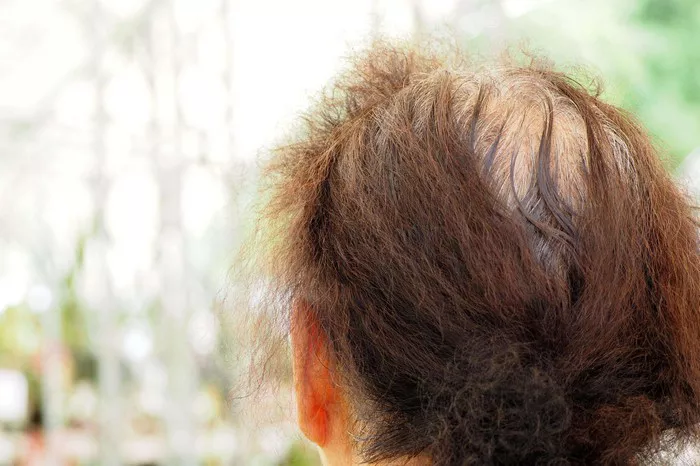In the realm of autoimmune diseases, lupus stands as a formidable opponent, affecting millions of people worldwide. One of the distressing side effects that often accompanies lupus is hair loss. In this article, we’ll delve into the intricacies of lupus-related hair loss and unveil effective strategies to prevent and manage this challenging condition.
1. Understanding the Link between Lupus and Hair Loss
At the core of combating lupus-induced hair loss is a profound understanding of the connection between the autoimmune disorder and its impact on hair follicles. Lupus triggers the immune system to mistakenly attack healthy cells, including those in hair follicles. This assault can lead to hair thinning and loss. Studies have shown that approximately 50% of lupus patients experience hair loss at some point during their illness.
a. Immune System Dysfunction: Lupus induces an overactive immune response, leading to inflammation that adversely affects hair follicles.
b. Hair Follicle Vulnerability: The attack on hair follicles disrupts the natural growth cycle, causing hair to become brittle and fall out.
2. Implementing a Lupus-Friendly Diet
Diet plays a pivotal role in managing lupus symptoms, including hair loss. Opting for an anti-inflammatory diet rich in omega-3 fatty acids, antioxidants, and vitamins can potentially mitigate the impact of lupus on hair health.
a. Omega-3 Fatty Acids: Found in fish, flaxseeds, and walnuts, these essential fatty acids possess anti-inflammatory properties that may alleviate lupus-related inflammation.
b. Antioxidant-Rich Foods: Berries, spinach, and tomatoes can help neutralize free radicals, potentially reducing oxidative stress on hair follicles.
3. Stress Management: A Crucial Component
Stress exacerbates lupus symptoms, including hair loss. Implementing effective stress management techniques is imperative for individuals battling lupus to minimize the impact on their hair.
a. Mindfulness Meditation: Engaging in mindfulness practices can reduce stress levels, positively influencing overall well-being and potentially slowing hair loss.
b. Yoga and Exercise: Physical activity releases endorphins, promoting a sense of well-being and potentially counteracting the adverse effects of stress on hair health.
4. Customized Lupus Treatment Plans
Consulting with healthcare professionals to devise personalized lupus treatment plans is crucial. Medications such as corticosteroids and immunosuppressants can help manage lupus symptoms, including hair loss.
a. Corticosteroids: These anti-inflammatory medications may be prescribed to suppress immune system activity, alleviating the attack on hair follicles.
b. Immunosuppressants: Medications like azathioprine can modulate the immune system, potentially reducing the severity of lupus-induced hair loss.
5. Gentle Hair Care Practices
Lupus patients must adopt hair care practices that minimize stress on fragile strands. Choosing mild shampoos, avoiding excessive heat styling, and gentle detangling are essential steps in preventing further hair loss.
a. Sulfate-Free Shampoos: Harsh chemicals in shampoos can exacerbate hair loss; opting for sulfate-free alternatives is gentler on fragile hair.
b. Avoiding Heat Damage: Limiting the use of heated styling tools reduces the risk of further weakening already compromised hair.
6. Regular Monitoring and Adaptation
Lupus is a dynamic condition, and its impact on hair health can fluctuate. Regular check-ups with healthcare professionals ensure that treatment plans are adjusted as needed, maximizing the effectiveness of lupus management strategies.
a. Diagnostic Tests: Periodic blood tests and dermatological assessments enable healthcare providers to monitor lupus activity and its impact on hair follicles.
b. Open Communication: Maintaining open communication with healthcare providers allows for the timely adjustment of treatment plans based on the individual’s response and changing lupus dynamics.
See Also: 5 Effective Hair Growth Shampoos to Combat Hair Loss
In conclusion
Tackling lupus-related hair loss requires a multifaceted approach encompassing lifestyle changes, dietary adjustments, stress management, medical interventions, and gentle hair care practices. By embracing these strategies, individuals with lupus can regain a sense of control over their hair health and enhance their overall quality of life. Remember, prevention and management are key in the journey to combat lupus-induced hair loss successfully.


